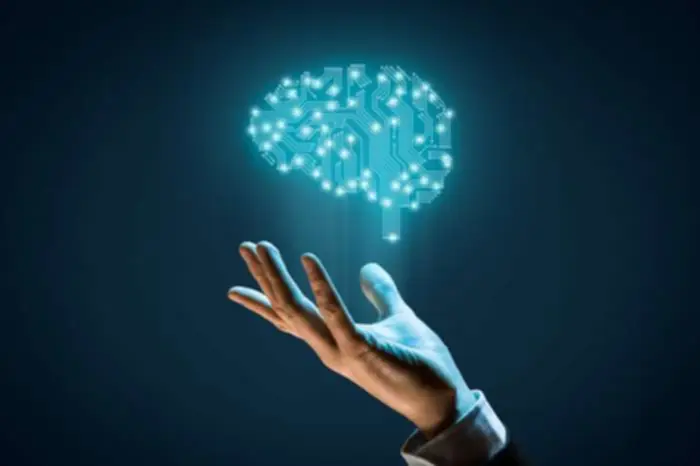Behind the scene it’s an indirect admission of the failure of the SQL model to support any type of OLTP or assist for brand new dataformats. “Support” means not simply store however full entry capabilities – programmatic and querywise using the usual mannequin. A design alternative widespread to NoSQL methods nosql database development is a “shared-nothing” structure. In a shared-nothing design, every server node in the cluster operates independently of each other node.

Types Of Databases – Nosql Database
Document stores appear essentially the most pure among the NoSQL database varieties as a result of they retailer everyday documents. They allow for complex querying and calculations on this often already aggregated type of data. Document databases store data in CML, YAML, JSON, or binary documents similar to BSON. Use instances include online retail, buying and selling platforms, and mobile app development throughout industries.
Functions That Require High Knowledge Flexibility:
SQL and relational database techniques are pervasive because they ship a general-purpose mechanism for supporting most information administration requirements. They’re designed to be reliable, accurate and helpful for planned functions as properly as advert hoc and sophisticated queries. Nevertheless, some SQL and relational requirements — for example, inflexible schema and strict ACID — can make them less appropriate for purposes that require versatile data and high pace.
The Unified Stack For Contemporary Data Teams

That evolution is seen, for example, in MarkLogic from Progress Software, which added a graph retailer and other elements to its original document databases. Apache Cassandra has combined key-value components with a wide-column store and a graph database. Sometimes NoSQL components are combined with SQL parts, creating quite a lot of databases which are known as multimodel databases. One of the main differentiators between NoSQL databases and different types of databases is that NoSQL databases usually use unstructured storage. Developed within the final 20 years, NoSQL databases were designed for fast, easy queries, huge information, and frequent application changes.
The system doesn’t need to get consensus from other nodes to return data to a shopper. Queries are fast as a outcome of they can be returned from whichever node is closest or most convenient. By contrast, every NoSQL database tends to have its own syntax for querying and managing the information. CouchDB, for example, makes use of requests in the type of JSON, despatched via HTTP, to create or retrieve documents from its database.
Both kinds of databases have their own strengths and weaknesses, and can be utilized together in a hybrid method to realize one of the best of each worlds. These databases shops nodes, that are discrete information entities similar to customers, products, or places. If you’re coming from a relational background and nonetheless aren’t certain how NoSQL differs, see Understanding the variations between NoSQL and relational databases. While SQL is valued for ensuring information validity, NoSQL is sweet when it’s more essential that the supply of big data is quick. It’s additionally a good choice when an organization will want to scale because of altering requirements.
NoSQL databases emerged within the late 2000s as the price of storage dramatically decreased. Gone have been the times of needing to create a posh, difficult-to-manage information model in order to keep away from data duplication. NoSQL databases handle real-time and operational knowledge effectively in a knowledge lakehouse setup, feeding it into the lakehouse for complicated analytics. These embrace the dearth of standardization, issues in transaction consistency, and difficulties in advanced queries or joining knowledge.
NoSQL databases, corresponding to Cassandra or MongoDB, are characterised by a distributed architecture, which is vital to managing a big volume of information. This structure distributes knowledge across multiple servers, enhancing system availability, resilience, and scalability. In most NoSQL databases, information may be saved and managed efficiently, allowing for a fast response even with a large knowledge quantity. There are important differences between NoSQL databases and conventional relational databases. Over time, vendors have combined and matched parts from completely different NoSQL database households to realize extra usually helpful methods.
This unique function of NoSQL databases makes them particularly well-suited to environments the place knowledge could be varied and should grow rapidly, such as on social media applications or e-commerce platforms. NoSQL databases supply a excessive degree of flexibility in formulating queries. They are capable of managing complicated and varied requests, adapted to the nature of the data being saved. This flexibility is especially useful for applications that require customized queries or superior information analytics.
For instance, you might use a NoSQL database if you have large knowledge objects like images and movies. An SQL database would not have the flexibility to handle these objects as effectively, making it tough to meet your data requirements. When choosing a modern database, one of many biggest decisions is picking a relational (SQL) or non-relational (NoSQL) data structure. Both systems offer distinctive advantages and cater to totally different wants, making the selection between them crucial for optimal data management. In fact, many builders find modeling data in NoSQL databases to be incredibly intuitive. For instance, documents in MongoDB map to information constructions in the most well-liked programming languages, making programming quicker and simpler.
- For example, you might use a NoSQL database in case you have massive knowledge objects like images and movies.
- Instead, a NoSQL database uses a flexible information mannequin that can store data in a variety of methods, corresponding to in key-value pairs, documents, graphs, or columns.
- When choosing a database for a selected software, it is necessary to weigh the benefits and disadvantages fastidiously to determine one of the best fit.
- 2009 noticed a significant rise in NoSQL databases, with two key document-oriented databases, MongoDB and CouchDB, coming into the image.
Their capacity to manage large volumes of data in actual time without compromising on pace is a significant asset. Although NoSQL databases are not oriented towards relationshipsas structured as those in SQL models, they nonetheless provide efficient ways to handle the relationships between data. For instance, in a document-oriented database, paperwork can include references to different documents, making it simpler to create dynamic links between knowledge. NoSQL databases are also the preferred choice of builders, as they naturally lend themselves to an agile development paradigm by rapidly adapting to changing requirements. Moreover, NoSQL databases can take full benefit of the cloud to ship zero downtime. Companies have found that utilizing a single, relational database for each component of an utility has its limitations, especially when better alternate options exist for specific components.

Other limitations stem from the reality that NoSQL systems lack sure options one takes for granted in the SQL space. NoSQL databases are often used in fashionable internet and cell functions, where the ability to rapidly store and retrieve large amounts of information is crucial. SQL databases are sometimes used in more traditional functions, such as monetary techniques and buyer relationship administration (CRM) applications. NoSQL is a database administration system constructed for the complexities of working with Big Data. SQL database schema organizes data in relational, tabular methods, utilizing tables with columns or attributes and rows of data.
We need to store a user’s first name, last name, cellphone number, city, and hobbies. Some NoSQL proponents declare that their favorite NoSQL database is the new way of doing issues, and SQL is a factor of the previous. DigitalOcean makes it easy to launch within the cloud and scale up as you develop — whether or not you’re operating one digital machine or ten thousand. For some NoSQL methods, you possibly can select one of a quantity of compromises between consistency and velocity, although what’s out there will differ between merchandise. Microsoft’s Azure Cosmos DB, for instance, lets you choose a level of consistency per request, so you can select the conduct that matches your use case.

Transform Your Business With AI Software Development Solutions https://www.globalcloudteam.com/
